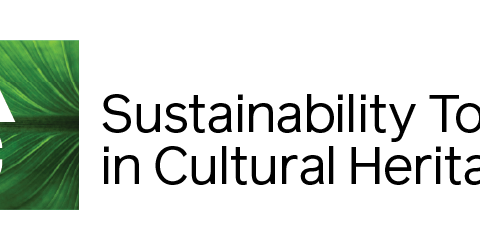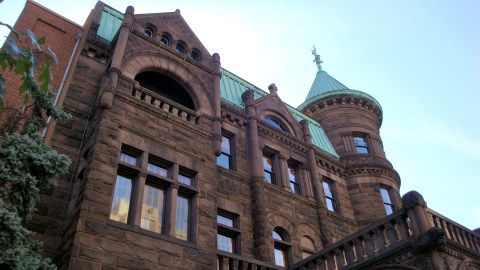Would you rather be loved, or would you rather save the world?
You can’t necessarily have both.
I pondered this choice, as it applies to museums, yesterday morning at the last half day of the 21st Century Learning in Natural History Settings conference at the National Museum of Natural History.* (Search #21cnhm if you want to view the recent flurry of conversation on Twitter.)
One of the documents being drafted as part of this project is a statement on the assets, public value, and potential of natural history institutions. In defining “what we are,” the document affirms, several times, “we are trusted.”
One thing that engenders trust is love, and it is true that many people love museums. Natural history museums in particular seem like prime candidates for universal love. Dinosaurs. Mummies. Cool dioramas. Birds, bugs, snakes (ok maybe these last two are not universally popular).
But it’s not all cute fuzzy animals. Natural history museums do more than reflect the documentary and observational practices of early natural historians. They are scientific institutions in a time when science seems to be increasingly devalued, especially when it comes to the ways in which science might inform national politics and policy.
The current 21cnhm draft values statement also affirms that natural history institutions can (or should) play a role in teaching about evolution and the human role in climate change (“altering the Earth’s natural processes”).
But there are a lot of people in the U.S. who aren’t going to trust museums on the issues of evolution and climate change. Less than forty percent of Americans believe in evolution while twenty-five percent don’t (the rest are agnostic, so to speak). Thirty-five percent believe that effects from global warming “will never happen” (18%) or “not in their lifetime” (16%). If natural history museums clearly and aggressively adopt an agenda of teaching evolution and the human role in climate change, the folks who don’t believe in these issues now probably aren’t going to trust natural history museums in general, either.
Which is fine, if museums are willing to write off that audience (most likely) or win them over (nice ambition, but less likely.)
But how does that reconcile with the reams that have been written on the need for museums to embrace diversity? One attendee yesterday thought the values statement should reference the need to “respectfully engage diverse communities,” another attendee felt museums should reflect “a plurality of voices.” Does that include political diversity and the voices of religious fundamentalists, even when they are at odds with mainstream views of scientists?
Many museum aspire to be “places of dialog,” creating “safe spaces” where people with different perspectives can come together for civil (and civic) conversation. And now museums are being told that, in the 21st century, they may need to adapt to the trend of distributed authority, becoming moderators and facilitators of learning and discovery for their audiences rather than the sole expert.
But one of the hard things about being a good facilitator is that you don’t get to inject your opinion into the discussion. Honest brokers don’t have agendas.
So this morning’s conversation made me think about the choice we face about the role our museums will play in society. Do we want to present opportunities for learning, trusting our audiences to draw their own conclusions, hoping that this in turn creates trust in museums as honest and neutral brokers of information? Or, do we want to set forth an agenda that may save the world and, in the process, be willing to say “you, you’re not only wrong, you’re endangering the future of the human race.”
And who gets to make that choice—to decide what values guide an individual museum, or the field?
Several years ago I had a memorable dinner with close museum friends, which turned tense when one of us, the director of a science museum in the Midwest, revealed she had nixed a travelling exhibit on evolution because it would incite controversy and damage her ability to operate in the political and funding communities in that city. She was pragmatic—but she also felt the museum had a responsibility to reflect community values, and this exhibit would not. Her colleagues were horrified—they felt a science museum should reflect the values of scientists, no matter who that offends.
A large majority of staff in natural history museums might eagerly take on the role of defender of science, and go to battle on behalf of teaching evolution and convincing the American public of humanity’s role in climate change. And some directors might, too. Others, like my friend, might ponder the realities of public funding and support in a US where a large percentage of the public don’t share these values. Pragmatic concerns aside, some might feel it is more important for museums to be neutral (and trusted) places for self-directed discovery than to advance a particular agenda.
This is a very difficult conversation. The choice—facilitator or advocate—is one that has to be made at the level of the individual institution and (if we are trying to create unifying statements about who we are) for the field as a whole. I’ll be interested to see how this tension plays out in the statements drafted through 21cnhm.
(*I actually missed the bulk of the meeting, only swooping in to listen to the summaries of three days of intense work. The conference is part of an ongoing project to “develop, initiate and disseminate a collaborative and sustained learning research agenda to inform how natural history museums can best use their resources to support our audiences in the 21st Century.” I’ll be catching up by watching videos of the conference and reading the draft documents-in-process at the project wiki, and you can, too.)









Nice post, Beth – as you know, I managed to miss the whole of that meeting because I was busy engaging with some of the planet's diverse microbial community. I'm looking forward to seeing how things develop. From the meeting…
I don’t think engaging with diverse audiences precludes telling them things they don’t like. On the other hand, what it does mean is that you should shape the message according to your audience. Sad to say, a significant number of my colleagues believe that anyone who does not accept evolution is an idiot, as is anyone with any form of religious belief. This isn’t an acceptable position for a museum to adopt, even behind the scenes. Some of them may be idiots. But they also pay your salaries.
What sets museums apart from many other institutions is evidence – we deal with object-based scientific evidence, in the form of our collections, and in adopting a position on a particular subject – be it evolution, climate change, or whatever – we go where that evidence takes us. And I think we can say that, and explain why, without necessarily rubbishing everyone who believes something different.
How serious a problem is this in science museums? You provide an example of one museum director who unfortunately decided to duck the issue of evolution, but there are others who do not avoid it (e.g., at the height of the creation/evolution debate in Kansas, the director of the KU Natural History Museum went out of his way to bring in an exhibit on evolution).
All museums have to deal with the political reality that comes from promoting unpopular ideas, but I doubt whether the majority of those who doubt evolution or global warming ever visit science museums anyway.
I do see several other related problems that are possibly more severe. One of these was best articulated by Steven Conn is his recent book, "Do Museums Still Need Objects?" In chapter four, he asks, "where are the science museums for adults?" pointing out that the vast majority (possibly all?) science museums in the US are overwhelming child-oriented to the point that there is not much to attract adults to them, other than as escorts for children.
Another issue is in how we frame the discussion of science vs. anti-scientific ideas. You yourself fell into the trap of using the phrase "believe in evolution." Evolution is not something one believes in, it is a scientific theory that is the best explanation for observable facts and the best predictor for gaining knowledge. Creationism is something one has to believe in (or not believe in) because it is based on an assumption that certain religious ideas are true. When the word "believe" is used for both evolution (science) and creation (religion) we are giving the two ideas equal merit, although one is fact-based and the other belief based. This may seem like a trivial rhetorical issue, but it isn't. The majority of the American public does not understand what science is (and is not) and has difficulty separating scientific ideas and facts from myths and presumptions. Which is why some museum directors may be afraid to take on controversial subjects even when their role should be providing factual information to the public.
Posted on behalf of Dr. Anita F. Cholewa, Curator of the UM Herbarium (MIN) and Acting Curator of Lichens
J.F. Bell Museum of Natural History
Existing Trend: Decreasing numbers of students are exposed to organismal biology leading to decreased appreciation for specimen collecting and specimen preservation.
Potential Troubling Trend: Lightning fast improvements in technology are a two-edged sword: while necessary for more efficient access to specimen information, can also can lead to nature deficit, since the potential is there for a compelete removal from the specimen. Using a Star Trek analogy – identification and information will be accessed using a tricordor (or "smarty phone") and botanists need not apply.